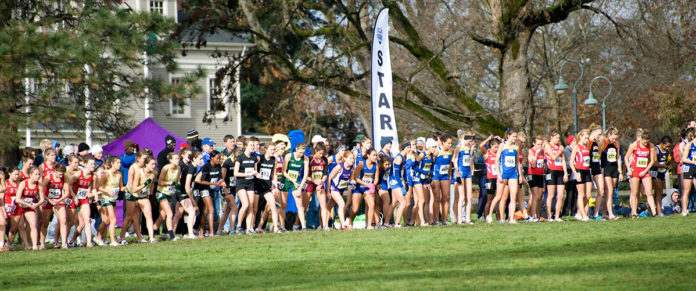
For most U.S. cities, sports tourism is an economic slam dunk, home run, touchdown – choose your winning metaphor. In the most recent National Association of Sports Commissions Sport Tourism State of the Industry Report, estimated visitor spending associated with sports in 2016 was $10.47 billion, an increase of 10% over the previous year, and it continues to rise. And on average, sports commissions such as Vancouver USA Sports hosted an average of 53 sports events, an 18% increase year over year.
Bottom line? Sports tourism is big, big business.
The Vancouver Sports Commission, better known as Vancouver USA Sports, is a function of Visit Vancouver USA, the area’s official destination marketing organization. The organization is in the midst of a market feasibility study to determine the potential for sports tourism in Vancouver and Clark County and, more importantly, how to reach it.
Vancouver USA has contracted with Huddle Up Group, a tourism industry consulting firm based in Arizona, to perform the analysis, which includes an initial sports tourism audit, stakeholder interviews, venue tours, a competitive analysis and a recommendations report, which will be released early next year. Regionally, Huddle Up Group has performed feasibility studies in Eugene, Medford and Brookings, Ore., mid-sized Northwest cities with market similarities.
Huddle Up Group has a proprietary tool, the Sports Tourism Index, which is an initial assessment that scores regions on facilities, destination strength, organizational structure and events. Visit Vancouver USA’s score was below average for both the West region and midsize markets. Its biggest advantage, according to the initial report, is its “opportunity for growth.”
“The report from Huddle Up Group is the first step for us in developing this market, the next step is going to be prioritizing and starting to implement those recommendations,” said Visit Vancouver USA Director of Marketing and Communications Michelle McKenzie. “While we won’t get that report until February, we’re already starting to build a fan club of organizers, venue owners and operators, and hoteliers who can help us identify needs and gaps that already exist that we may be able to assist with.”
She said sports tourism represents about “25% of the room nights that we directly touch, which is a big chunk of our business.”
Hurdles for Southwest Washington sports tourism are significant. A major challenge is lack of venues. Most of the city’s sports fields are school fields, which cannot be booked more than a year in advance, and school events take priority. Across the board, national championships, which can rake in millions of dollars even for mid-sized cities, need a longer lead time and priority booking.
“We are competing against destinations that have much larger facilities, and also significantly more funding in their sports commissions,” McKenzie said. “Some of these destinations can write pretty large checks to groups they are courting, and that’s something we are not able to match.”
That said, the organization recognizes there is not an appetite right now for stadium building; rather, incremental change is on the horizon, while the city continues to build “overall destination appeal” as a regional and national destination with the Vancouver Waterfront and other developments.
However, the region has several successful events that draw significant attention. The NAIA Men’s and Women’s Cross Country National Championships are set for Nov. 22 at the Fort Vancouver National Historic Site.
HoopSource’s Presidents Day Tournament of Champions and the Washington Timbers FC Clash at the Border have both shown a boon to overnight visits. The PeaceHealth Appletree Marathon, put on by Why Racing, and U.S. Rowing junior and senior regattas bring participants from around the region and may have greater potential.
“We are also looking at partnering more closely with local organizing groups like the WA Timbers and Why Racing to see how we can help them expand their events and create more of an impact,” McKenzie said. “While we are still figuring out a model to best partner with events like these, we know that our local restaurants and businesses see an impact when people come out for the events.”
The role of Vancouver USA Sports includes assisting event leaders with booking groups at hotels and venues, site evaluation and tours, marketing materials and event promotion. These services save sports promoters thousands of dollars while bringing many times that to area hotels, conference locations, shops, restaurants and bars.
An upshot of sports tourism is that it tends to be less susceptible to economic downturn, especially when factoring in local pay-to-play youth activities like Little League Baseball and Hot Shots Basketball League.
“While tourism spending shrunk during the last recession, sports spending and memberships continued to grow,” McKenzie said. “While a family might put a trip to Disneyland on hold, they probably aren’t going to make their daughter sit out of lacrosse.”



